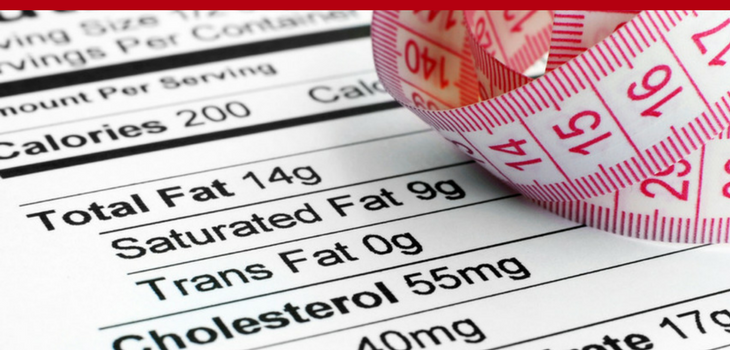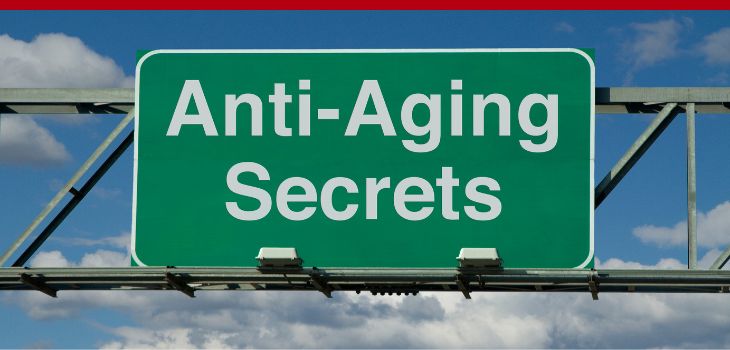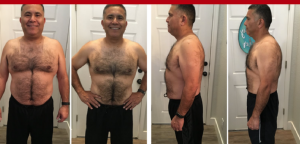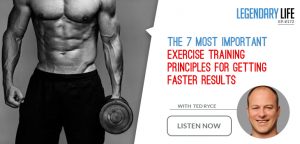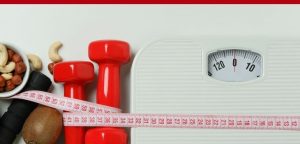by Ted Ryce
FREE Training: Part 1: The 4 Biggest Diet & Exercise Myths Stopping You From Reclaiming Your Health And Creating A Lean Body with Ted Ryce
If you’re looking to lose belly fat or lose weight naturally without spending money on worthless fat loss supplements or going on restrictive diets, then you’re reading the right article. These fat loss tips will help you sort through the myths so you that you can get on the right track with your results.
I bet you know a lot about nutrition. You read articles like this one, listen to podcasts and watch videos on the best foods you should eat to become lean, mean, fat burning machine.
So you pour olive or avocado oil on all your salads, eat coconut oil by the tablespoonful and even put grass-fed butter in your coffee. You also eat plenty of avocado and nuts by the handful as healthy snacks.
And as you stick your fork into your salad saturated with olive oil, you might tell yourself, Well, at least I’m eating a hearty serving of low-carb veggies and healthy fats instead of unhealthy processed junk food.
Sound familiar?
But somehow, for all the nutrition info you know, you’re not able to get results. Your belly still bulges and you don’t look or feel your best.
Wondering why you can’t burn fat and lose weight even though you know so much about nutrition? I can guarantee it’s because you’re making at least one of these four diet mistakes.
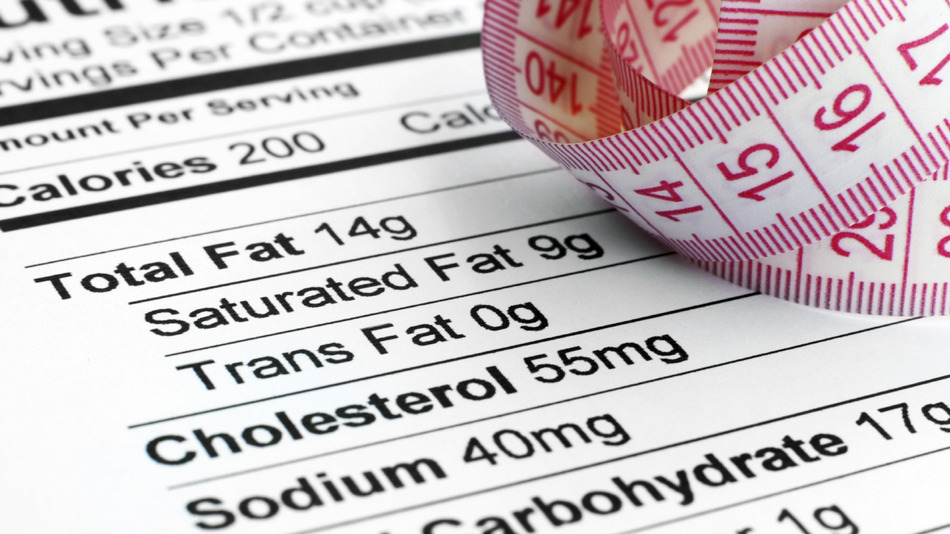
Fat Loss Myth #1: “Calories don’t matter”
This has got to be the number one mistake I see people make that wrecks their healthy food choices along with their waistlines.
I know, I know. You’ve heard that “calories don’t matter.”
If you’ve been following any of the popular diet gurus on the internet, you’ve probably heard them say that calories don’t matter and there’s some other hidden reason that you can’t lose weight.
For example, Dave Asprey, the Bulletproof Executive, wrote a long article explaining in detail why it’s the “quality” of food that counts, not the calories.
Medical doctor Mark Hyman wrote a post called Why Calories Don’t Matter talking about how the calories in/calories out model of weight loss is unscientific and outdated.
Other online fitness & diet gurus have said similar things like:
- Calories don’t matter because fat loss is all about hormones
- You can’t get fat from eating fat
- Carbs make you fat because of insulin
I sued to believe all that too. In fact, I used to teach it to my personal training clients for years.
Here’s the thing…
There’s a bit of truth to some but not all of the above statements—we’ll cover that in a bit—but saying calories don’t matter is simply not true.
What if someone told you that they wanted to drive from Miami Beach (where I live) to Los Angeles.
Then you asked them about how many miles that is and how many gallons of gas they need to get there.
Then they told you as long as you use “clean,” organically grown, non-GMO fuel then it doesn’t matter how much gas it takes.
That’s as asinine as saying, “Calories don’t matter.”
In fact, the struggle for survival for every animal on earth is about getting more energy from food (i.e. calories) than the energy they use to get the food.
This is the concept of energy balance based on the first Law of Thermodynamics—which states that, “energy cannot be created or destroyed, only transferred.”
And when we talk about energy balance and fat loss, we’re referring to the relationship between the amount of energy you eat and the amount you burn.
I tell people that it’s like a bank account.
- If you eat more energy than you burn, you’re in a positive energy balance and you gain weight.
- If you eat less than you burn, you’re in a negative energy balance and you lose weight.
This energy balance is measured in calories—the thing that many people believe doesn’t matter when it comes to weight loss.
What Is A Calorie Anyway?
Next time someone says that calories don’t matter, ask them what a calorie is in the first place and see if they can answer it without asking Google. I bet they have no idea. Seriously, ask anyone. I’ll wait…
Just so you know, a calorie is the amount of energy required to heat 1 kilogram of water by 1 degree Celsius.
In my general chemistry class, we even did experiments with a calorimeter to measure the amount of energy produced in combustion reactions.
Calories are just a way to measure the potential energy in food.
Foods that are calorie-dense (like muffins, bagels, pasta, potato chips, ice cream, etc.) contain a lot of energy.
Foods that are low in calories (like spinach, lettuce, broccoli, etc.) don’t have as much energy in them.
My point is this: The unsexy truth is that for weight loss to happen, you need to eat less energy than you burn.
Conversely, if you want to gain weight you’ll have to eat more calories than you burn.
This isn’t just my opinion. It’s a scientific fact that has been proven over and over again in decades of metabolic ward research.
A more accurate thing to say is that energy balance/calorie intake is the most important determinant of whether you lose or gain weight.
That means that even if you eat the “cleanest” diet in the world, you’ll still gain weight if you eat too much.
And even if you eat mostly junk food, you can lose weight as long as you burn more calories than you eat.
That’s why a science teacher named John Cisna lost 56lbs in six months while eating nothing but food from McDonald’s.
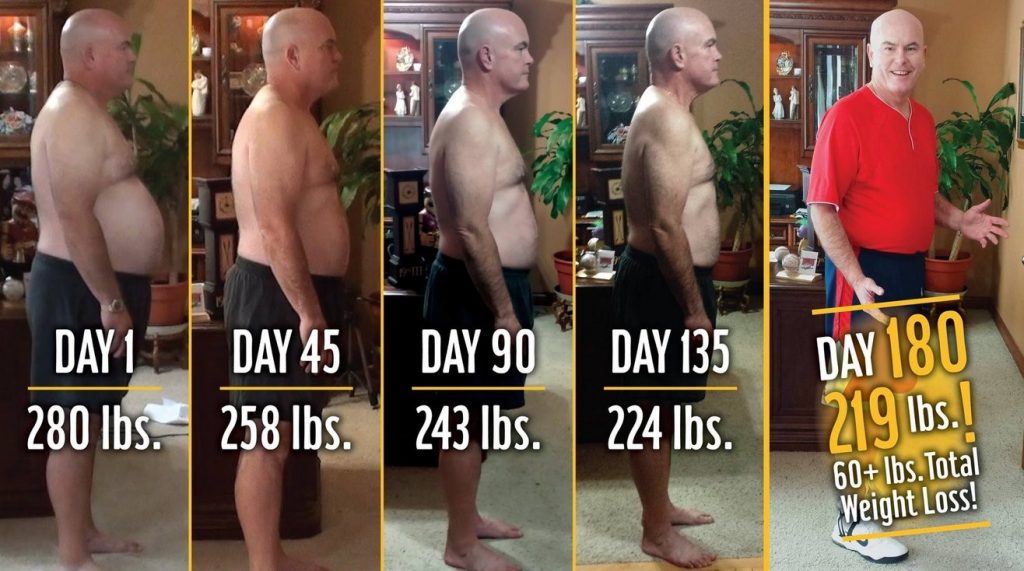
And you may think he was eating nothing but salads. But that wasn’t the case. He says he ate almost everything on the menu and ordered fries every single day.
Now, for those of you who don’t know me, I’m not a “shill” for the fast food industry nor am I suggesting that you should eat at McDonald’s to lose fat. Although food quality doesn’t matter as much for fat loss, it’s still important for health.
But I am trying to get you up to speed on the underlying scientifically proven mechanism of weight loss.
Why?
Because once you understand this concept, you’ll be able to free yourself from searching for the “hidden weight loss secret” BS marketing designed to part you from your hard-earned money. Then you can get down to doing the work.
And that work is: you have to eat less calories than you burn to lose weight.
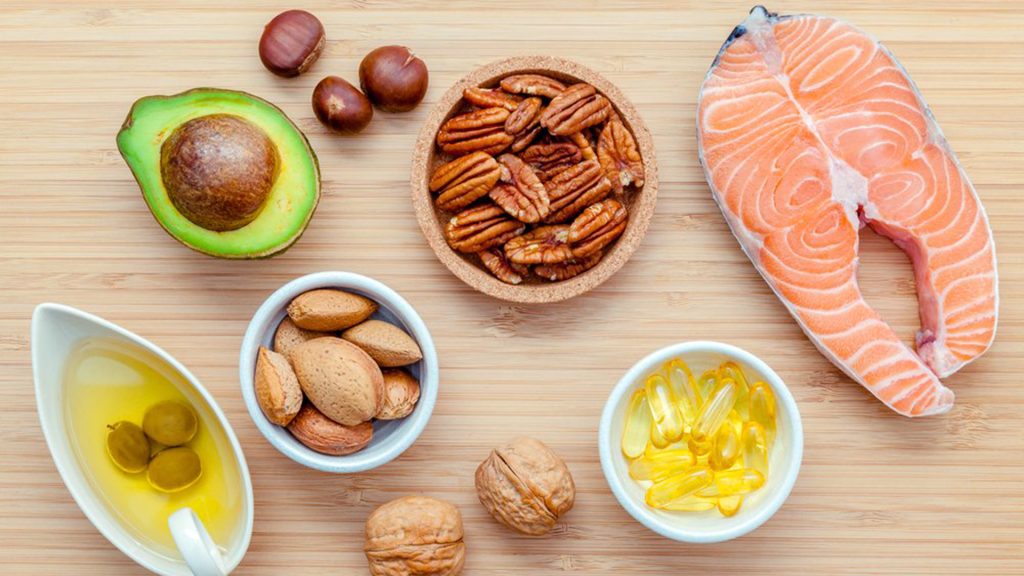
How “Clean Eating” Got Me Fat
Unfortunately, I had the opposite happen to me. While John Cisna lost fat eating McDonald’s, I got fat eating good quality, “clean” food.
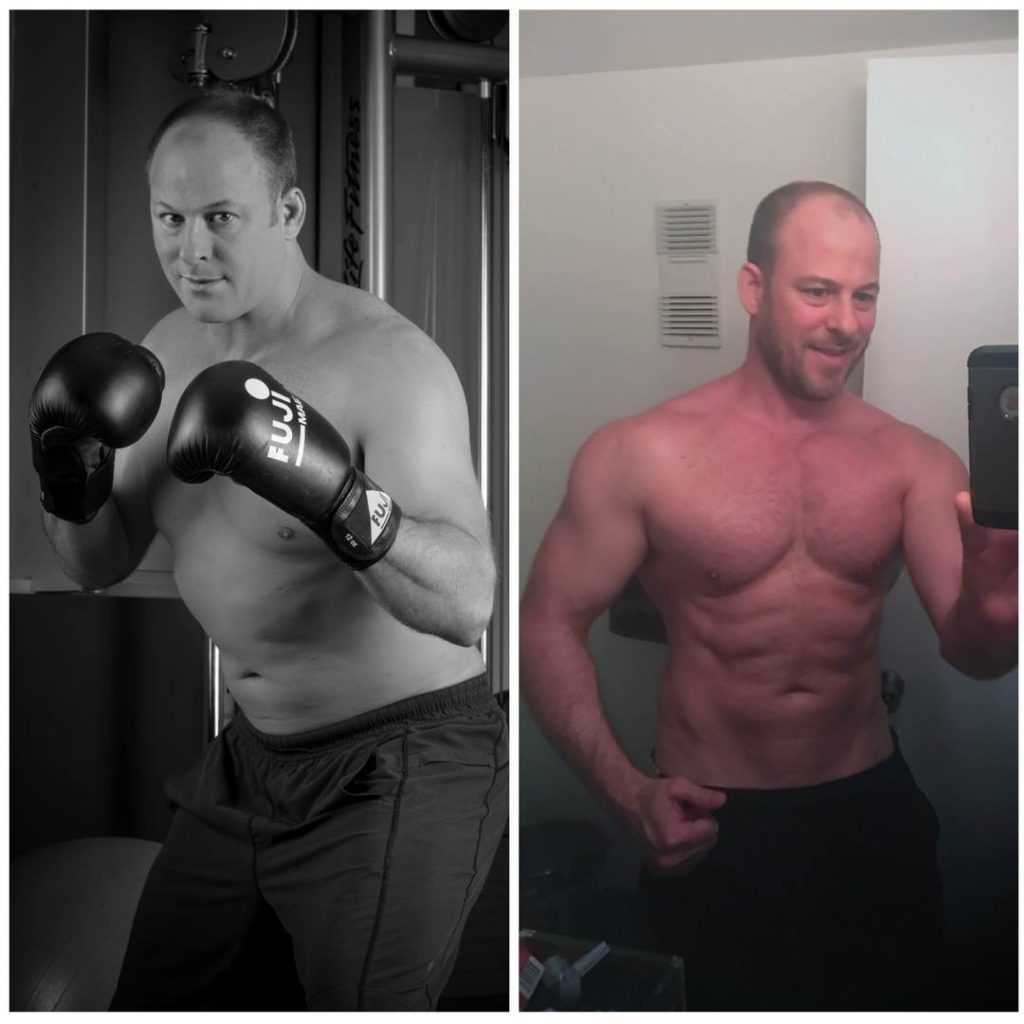
The answer is simple: I was eating too much. #calories
There’s a big disconnect between eating healthy and being healthy.
And if you have too much fat on your body, you’re not that healthy—even if you got fat by eating “healthy” foods like i did.
I know because I had trouble connecting the dots despite studying nutrition for many years.
At first I didn’t believe that it was the food I was eating. I thought it was my age, genetics, hormone levels, etc. I thought there HAD to be a better answer than I was just eating too many calories.
I believed in my heart that there was some “secret” I was missing. I believed that there was a hidden piece of the fat loss puzzle that involved something other than eating less.
But after diving into the research and applying these principles to hundreds of clients, to myself and getting consistent results, I now realize that I was wrong.
In fact, not one person in our Legendary Lean program has failed to lose weight as long as they follow the program. That’s right. Not one.
Let that sink in for a moment.
We have 100% success rate as long as people are willing to follow the plan.
Calories matter. Lower your calories and you’ll lose fat. Eat too many of them (regardless of the source) and you’ll get fat.
So although you don’t get to choose whether calories matter to your fat loss or not (it does), you can certainly choose how you create a calorie deficit to achieve your goals.
That means that you can use many diets and methods including:
- Intermittent Fasting
- Atkins Diet
- Veganism
- Ketogenic Diet
- Paleo Diet
- A Low-Fat/High-Carb Diet
- A High-Carb/Low-Fat Diet
- Calorie Counting
- Macronutrient Tracking (IIFYM)
And these methods are important. Because you’ll eventually realize that losing fat is mostly about habits and behavior and less about the science. In other words, if a certain method doesn’t work for a person’s life, they won’t get results with it. I’ve seen it time and time again.
That’s why we have our Legendary Lean members fill out a questionnaire when they sign up. We don’t push low carb, low fat or any other dietary approach on people. We ask them what they like to eat then design a program that fits their lifestyle, goals and preferences. We’ve even had vegan and vegetarian clients who’ve gotten results with our program.
So keep that in mind when choosing a nutrition approach you choose. You’ve got to be able to follow it.
And if you’re not losing fat, then you’re eating too many calories. You’ll either have to modify what you’re doing or change your approach to something you can follow.
Your Metabolism Explained
Many people get frustrated with calories in/calories out when it doesn’t work out for them. And that’s totally understandable. The numbers don’t often add up—especially if certain details aren’t taken into consideration.
However, it doesn’t mean that calories in/calories out is wrong. It means that you misunderstood how to apply it.
Many factors affect how many calories you get from your food as well as how many calories you burn. In addition to that, your metabolism is also “adaptive”. In other words, your metabolism slows down or speeds up depending on certain factors.
In the not-too-distant past, people said, “to lose 1lb of fat you need to burn 3500 calories”. But if it were that simple, it would be easy to starve to death—especially in the past where there wasn’t a Whole Foods to go buy your non-GMO, organic, gluten-free granola and a food shortage or famine was just a matter of time.
So your metabolism is an open system that changes according to your physiology and behaviors.
Let’s briefly go over your metabolism so you understand what’s at work here.
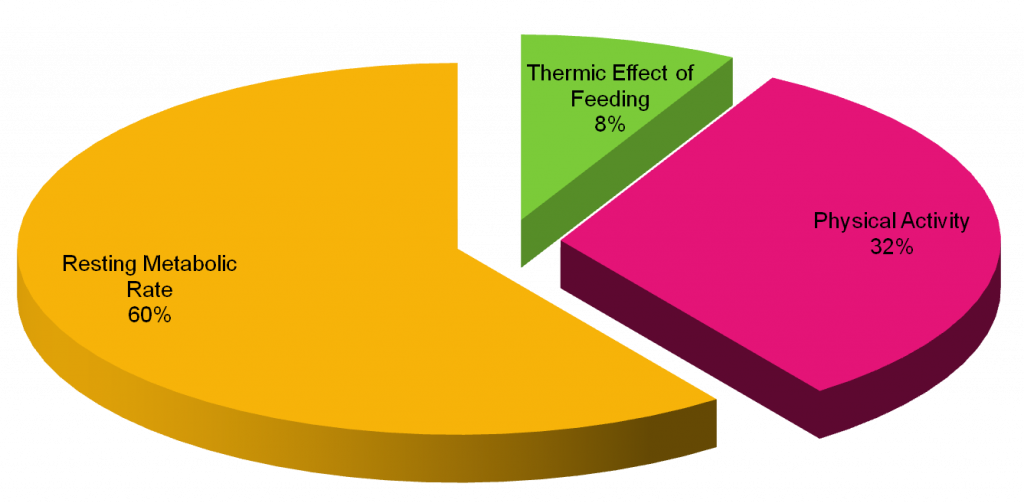
The 4 Parts Of Your Metabolism
Although our metabolism is complex and in constant flux, there are four key parts to this complicated system.
1. Resting Metabolic Rate (RMR)
RMR is the number of calories you burn each day at rest. That’s right. Just staying alive is how you burn about 60 percent of your ‘energy out’ part of the equation. Your RMR also depends on your bodyweight, sex, age and more. Another fun fact is that your brain demands around 20 percent of your RMR—which has led to scientific inquiry as to whether ‘thinking hard’ burns more calories. SPOILER: it doesn’t.
A key player in why weigh loss stalls for many people is that, in general, a bigger body has higher RMR. When you lose weight, your RMR slows just because you’re carrying around less mass. This goes counter to what most people think about fatter people having a slower metabolic rate.
On top of that, RMR varies from person to person as much as 15%. So you and that person next to you doing dumbbell curls might be burning more (or less) calories while putting in the same effort.
2. Thermic Effect Of Food (TEF)
TEF is how many calories you burn by eating and digesting your food. It surprises many people when I tell them that eating food actually burns calories and that digestion is a metabolically intensive process.
If you’ve ever felt hot after eating, you’ve experienced this firsthand. That’s why eating right before bed can interfere with your sleep if you’re one of those people (like me) who can’t sleep when it’s too hot.
3. Thermic Effect of Exercise (TEE)
Of course you knew this one. This is why people who work out have an easier time keeping the fat off than those who don’t.
To be clear, when we talk about TEE, we’re referring to purposeful workouts and hard training. Not going for a light walk in the park. In general, the harder and longer you workout, the more calories you burn. That’s why building strength and a high work capacity can help keep you lean.
It’s also important to keep in mind that overdoing exercise can lead to injuries and overtraining. That’s why having an appropriate workout for your current fitness level is important. Long-term consistency beats two months of hard workouts that end up injuring you.
4. Non-Exercise Activity Thermogenesis (NEAT)
NEAT is the calories you burn through all non-exercise activities. This includes everything from fidgeting, standing upright, and jumping up explosively from the couch when your favorite team scores a touchdown.
NEAT can vary greatly from person to person. Some people seem more inclined to fidget and have a hard time staying still while others have a hard time doing anything but lounging around.
Although NEAT isn’t as sexy as a hard deadlift workout or HIIT session, it’s really the greatest opportunity for burning more calories during the day without putting hard stress on your joints.
Getting up from your seat every hour, using a treadmill or standing desk , or using an under-desk elliptical like a Cubii can help you burn as many or more calories than a gym workout. So keep this in mind and find more opportunities to move around. Personally, I love to track my steps using the Stepz app. It’s free and simple to set up and use.
The Hidden Truths About Calories
1. Calorie Counts On Food Labels Are Not Precise
Scientists use calorimeters to burn food in order to determine how many calories are in that food. However, the amount of calories burned in a calorimeter is not always the same as the amount of calories you get from eating that food. Yes, I know. Science is hard and complicated.
2. We Don’t Absorb All The Calories We Eat
We already covered what TEF (thermic effect of food) is above. The TEF for protein (20-35%) is much higher than carbohydrates and fats. So 20-35% of the calories you eat from protein are used up in digestion. This is another reason why higher protein diets are superior for fat loss.
Another example an ounce of raw almonds contain 14 grams of fat but chewing only releases 1 gram of fat for digestion. The rest just passes through you
3. Cooking & Processing Makes Calories More Available
In #2, we talked about how we don’t absorb all the calories we eat.
Now let’s examine how cooking and processing foods make the calories in that food more available. For example, cooking nuts like almonds and legumes like peanuts increases the availability for fat calories to be absorbed by your body. Cooking has the same effect for vegetables and meats too.

Processing methods like chopping, blending and grinding free up more calories from your food as well. So you’re getting more calories from your mashed potatoes than baked potatoes—and that’s before you put butter and sour cream in them.
4. Your Gut Bacteria May Affect How Many Calories You Absorb From Food
The type of bacteria in your gut also appears to influence energy balance to some extent. Several studies have found that certain intestinal bacteria are associated with weight gain both in animals and in humans.
In fact, researchers have found striking differences between the gut bacteria of lean and obese individuals. A type of probiotic named Firmicutes seems to be more efficient at extracting calories from food than another intestinal bacteria called Bacteroidetes.
While the microbiome and its effects on bodyweight regulation and fat mass is an area of intense controversy and dispute, it’s important to understand it’s another example of how our calories in/calories out can be affected without any change in diet and exercise.
So How Many Calories Should You Eat?
The most accurate method for calculating your daily calorie needs is the Katch-McArdle equation. But then you’d have to figure out your body fat percentage and activity levels.
After that, you’d have to figure out how much protein, carbohydrates and fat to eat. Finally, you’d have to turn all that information into a meal plan so you know what to actually eat.
Although that’s the most accurate method and what I do for my coaching clients, it’s overkill to teach you that. So I’m going to make your life a lot easier by telling you how to calculate your macronutrient. In other words, I’ll show you how to determine a good starting point for how many grams of protein, carbs and fat you should eat for fat loss.
Here’s the formula:
0.8 x your bodyweight in lbs = grams of protein
1.25 x your bodyweight in lbs grams of carbs
0.2 x your bodyweight in lbs = grams of fat per
Now let’s calculate a starting point for you based on the above information:
For a 220lb man, this would be:
- 176 grams of protein per day
- 275 grams of carbohydrates per day
- 44 grams of fat per day
For a 150lb woman, this would be:
- 120 grams of protein per day
- 187 grams of carbohydrates per day
- 30 grams of fat per day
Keep in mind that this is a higher carbohydrate diet as I’ve found the majority of people I’ve worked with do better on this nutrition approach. It’s also the traditional approach that bodybuilders and physique athletes have successfully used for years.
If you need help figuring out exactly what to eat after you have your macros calculated or if you’d like a lower carb plan, then I highly suggest you contact me for a customized meal plan or coaching.

Calories Matter For Weight Loss
At the end of the day, you can eat all the healthy fats, grass-fed beef, and wild caught fish you want. But if you overeat (read: eat too many calories) you won’t lose fat—no matter how many nutrition articles you’ve read saying otherwise. It’s been proven time and time again.
In fact, outside the research world, there is very little controversy about this fact. And even the controversy that arises is specifically in the low-carb and ketogenic diet groups who ignore evidence that goes against their beliefs about the superiority of their diet.
I also want you to know that I don’t have a dog in this fight. Actually, if I promoted ketogenic diets, it’d be better for my business. But I don’t because I’ve seen that some people don’t do well on them. I’ve also seen people who do better with lower carbs. Nutrition approaches should be fit for the person, not forcing a person to follow a diet. With all that said, calories still matter. But how you choose to restrict them is all up to you.
To find out the other 3 myths and the strategies that you can do to create a leaner, fitter, and healthier body, sign up for my FREE Fat Loss Masterclass.
Want help becoming the healthiest, fittest, strongest version of yourself 3X faster?
Most people over 40 know that exercise, eating well, and quality sleep are important for looking and feeling better. Yet they need help applying that knowledge in the context of their busy, sometimes stressful lives.
If you’ve recently tried to follow a workout program that you used to do in your twenties, you probably noticed that it isn’t as effective as it used to be! When you are in your late 30s, 40s, and 50s, you need a workout designed for your age and lifestyle. So, you can exercise without straining your body, feeling exhausted afterwards or even getting injured and taking too many days to recover.
My 6-week customized workouts are designed to make you workout smarter, not harder.This is a program specifically designed for people over 40 is packed with everything you need to k to finally create that leaner, fitter, and healthier body that you’ve always wanted.
PLUS: If you buy in the next 48 hours, you’ll have direct access to me and you can ask all your burning questions in this one coaching email that you get as a bonus. Also, I’ll give you specific advice for nutrition and supplementation, so you can get results faster.



